
Like serials themselves, the history of publishing in New York can be read as a “continuing story,” with periodicals and their contents representing the diverse, shifting cultural politics of the city itself. Disparate voices of New York’s periodical press contended for the attention of various reading communities, relying on an extensive network of workers and the latest in printing technologies that only New York’s vast resources and talent pool could often provide.
We invite you to study this archive and explore both the influence of place on publications and the influence of these publications on place. As an institute participant, you will take part in discussions led by cultural historians, archivists, and experts in the fields of American literature, art and urban history, and periodical studies; participate in hands-on sessions in the periodicals collection of the New-York Historical Society; visit sites important to the rise of New York’s periodical press, such as Newspaper Row, Gramercy Park, the New York Seaport, the East Village, and the Algonquin Hotel; and attend Digital Humanities workshops.
You will also be asked to read a rich body of scholarship and consider new interdisciplinary approaches for researching and teaching periodicals that take into account the important site of their production, as well as relevant cultural, technological, aesthetic, and historical considerations. Sessions will be held across New York City including New York City College of Technology, the Brooklyn Historical Society, The Schomburg Center for Research in Black Culture, and the New-York Historical Society.
Jim Casey, Suzanne W. Churchill, David M. Earle, Jason W. Ellis, Brooks Hefner, Catherine Keyser, Kelley Kreitz, Christopher La Casse, Adam D. McKible, Mark Noonan, Lavelle Porter, Karen Roggenkamp, Graham Thompson, Ed Timke, and Daniel Worden.
Mark J. Noonan, Institute Director
Professor
Department of English
Namm 503
New York City College of Technology of the City University of New York
300 Jay Street
Brooklyn, NY 11201
Email: cityofprint@citytech.cuny.edu
Phone: 718-260-5173
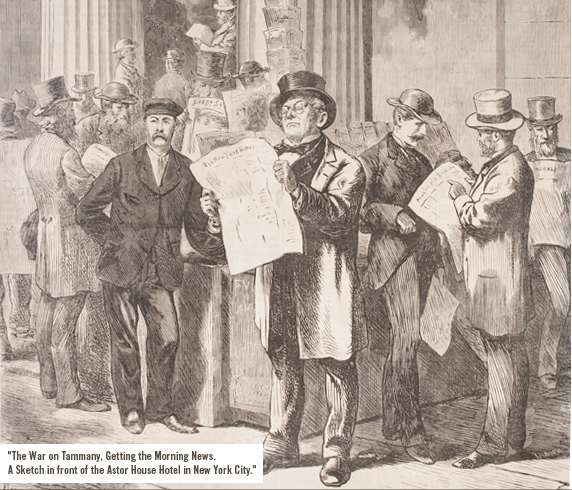
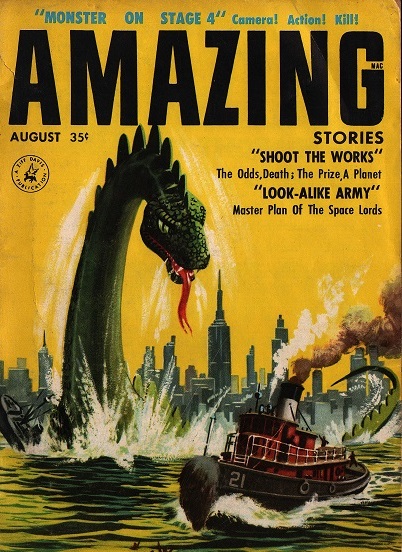
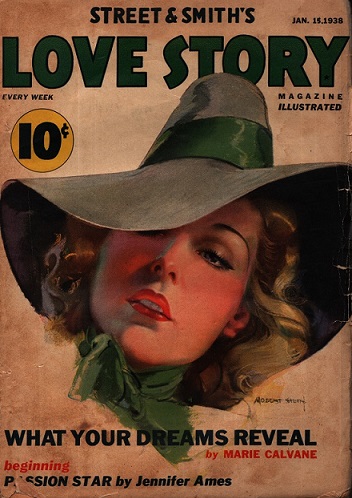
Summer Seminars and Institutes for College and University Teachers are offered by the National Endowment for the Humanities to provide college and university faculty members and independent scholars with an opportunity to enrich and revitalize their understanding of significant humanities ideas, texts, and topics. NEH Institutes provide intensive collaborative study of texts, topics, and ideas central to undergraduate teaching in the humanities under the guidance of faculties distinguished in their fields of scholarship. Institutes aim to prepare participants to return to their classrooms with a deeper knowledge of current scholarship in key fields of the humanities.
The application process is quite simple, but before you attempt to complete an application, please check out the ELIGIBILITY and SELECTION CRITERIA sections below, along with our project website, which contains detailed information about the topic under study, project requirements and expectations of the participants, the academic and institutional setting, and specific provisions for lodging and subsistence. Please note: An individual may apply to up to two projects (NEH Summer Seminars, or NEH Summer Institutes), but may participate in only one. All application materials must be sent to the project directors at the email or postal addresses listed below or on the project website. Application materials sent to the Endowment will not be reviewed.
A complete application consists of the following collated items:
Completed applications should be submitted to the project director, not to the NEH. Please submit your application electronically to Dr. Mark Noonan at cityofprint@citytech.cuny.edu
Applications must be dated no later than March 1, 2020.
Successful applicants will be notified of their selection on March 27, 2020, and they will have until April 3, 2020 to accept or decline the offer.
Once you have accepted an offer to attend any NEH Summer Program (NEH Summer Seminar or Institute), you may not accept an additional offer or withdraw in order to accept a different offer.
Individuals selected to participate in two-week projects will receive $2,100. Stipends are intended to help cover travel expenses to and from the project location, lodging, books and other research and ordinary living expenses. Stipends are taxable. Applicants to all projects should note that supplements cannot be given in cases where the stipend is insufficient to cover all expenses.
Seminar and institute participants are required to attend all meetings and to engage fully as professionals in the work of the project. During the project's tenure, they may not undertake teaching assignments or any other professional activities unrelated to their participation in the project. Participants who, for any reason, do not complete the full tenure of the project must refund a pro-rata portion of the stipend.
At the end of the project's residential period, NEH Summer Scholars will be asked to submit evaluations in which they review their work during the summer and assess its value to their personal and professional development.
NEH Seminars and Institutes are designed primarily for full-time or part-time faculty who teach American undergraduate students. Qualified independent scholars, advanced graduate students, and those employed by museums, libraries, historical societies, and other organizations are also eligible. All applicants must demonstrate that their participation will advance the teaching and scholarly goals of the program. Applicants must be United States citizens, residents of U.S. jurisdictions, or foreign nationals who have been residing in the United States or its territories for at least the three years immediately preceding the application deadline. Foreign nationals teaching abroad at non-U.S. chartered institutions are not eligible to apply.
An applicant need not have an advanced degree in order to qualify. We are specifically encouraging advanced graduate students, and contingent or adjunct faculty, and faculty from community colleges and tribal colleges to consider applying. Individuals may not apply to an NEH Summer Institute whose director is a family member, is affiliated with the same institution, or is someone with whom they have previously studied.
Recent participants are eligible to apply, but selection committees are charged to give first consideration to applicants who have not participated in an NEH-supported Seminar, Institute or Landmarks Workshop in the last three years.
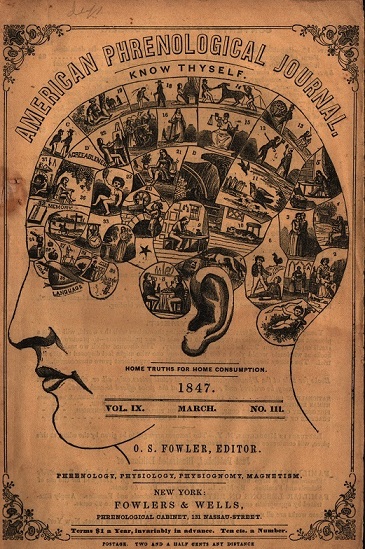
* * * * * * * * *
Endowment programs do not discriminate on the basis of race, color, national origin, sex, disability, or age. For further information, write to the Equal Opportunity Officer, National Endowment for the Humanities, 400 7th Street, SW, Washington, DC 20024. TDD: 202/606 8282 (this is a special telephone device for the Deaf).
“Any views, findings, conclusions, or recommendations expressed in this program do not necessarily represent those of the National Endowment for the Humanities.”
Mark Noonan is Professor of English at New York City College of Technology (CUNY). He is author of Reading the Century Illustrated Monthly Magazine: American Literature and Culture, 1870-1893 (2010), co-author of Brooklyn Tides: The Fall and Rise of a Global Borough (2018), co-editor of The Place Where We Dwell: Reading and Writing about New York City (2015), in addition to numerous articles on periodicals and urban history. He is past President of the Research Society of American Periodicals (2017-2019) and Founding Editor of the Columbia Journal of American Studies. In June 2016, he co-directed (with Florian Freitag), the Symposium, “Across Borders: Print and Periodical Studies in Motion.” In the Spring of 2018, he was Visiting Lecturer at Johannes Gutenberg University in Mainz, Germany. He also serves on the editorial board of Studies in Periodical Cultures and the advisory boards of the Research Society of American Periodicals and Circulating American Magazines, a digital resource for U.S. periodical studies.

Kelley Kreitz is Assistant Professor of English and affiliate faculty member in the Latinx Studies program at Pace University in New York City. She is also co-director of the university’s digital humanities center, Babble Lab. Her research on print and digital cultures of the Americas has appeared or is forthcoming in American Literary History, American Periodicals, English Language Notes, Revista de Estudios Hispánicos, and the digital mapping project C19LatinoNYC.org. She is working on a book that recovers the leading role played by U.S.-based Latin American writers in the media innovation of the 1880s and 1890s.
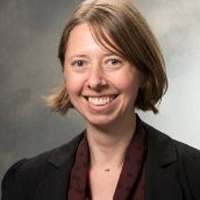
Adam D. McKible is Associate Professor of English at John Jay College of Criminal Justice. He is the author of The Space and Place of Modernism: The Russian Revolution, Little Magazines, and New York, and he edited and introduced Edward Christopher Williams’s, When Washington Was in Vogue, a previously lost novel of the Harlem Renaissance. He is also co-editor of a special issue of Modernism/ modernity devoted to the Harlem Renaissance and of the collection, Little Magazines and Modernism: New Approaches. His essays appear in a number of books and journals, including The Oxford Handbook of Modernisms, Teaching the Harlem Renaissance: Course Design and Classroom Strategies, The Black Press, African American Review, American Periodicals, Modernism/modernity, and various dictionaries and encyclopedias. His current project is tentatively titled Jim Crow Modernism, George Horace Lorimer, and the Saturday Evening Post.
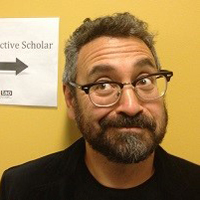
Jim Casey Casey is a postdoctoral research associate of the Center for Digital Humanities at Princeton University. He earned his PhD in English at the University of Delaware. In 2020-21, he will be an assistant professor of African American Studies, History, and English and the founding managing director of the Center for Black Digital Research at Penn State. His research interests begin with nineteenth-century African American studies, periodicals, and print culture, extending into the public and digital humanities. He is currently completing a book project, The Invention of Editors, 1740-1872. With P. Gabrielle Foreman, he is co-editor of the forthcoming collection, The Colored Convention Movement: Black Organizing in the Nineteenth Century (UNC Press). Among others, his digital scholarly projects include co-directing the Colored Conventions Project and Douglass Day. He serves as vice president of the Research Society for American Periodicals. For more, see jim-casey.com.
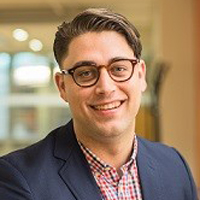
Suzanne Churchill is Professor of English at Davidson College. She is the author of The Little Magazine Others & the Renovation of Modern American Poetry (Ashgate 2006); co-editor, with Adam McKible, of Little Magazines & Modernism: new approaches (Ashgate 2007); and author and illustrator of Dinosaurs Drive Firetrucks (Britt Stadig Studio 2018). She has published on modernism and the Harlem Renaissance, and on periodicals, poetry, and pedagogy in various journals and collections. Founder and editor of the website, Index of Modernist Magazines (modernistmagazines.org), she is currently co-creating a collaborative scholarly website, Mina Loy: Navigating the Avant-Garde (mina-loy.com), which won a 2017 NEH Digital Humanities Advancement Grant.
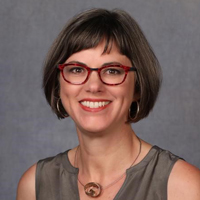
David M. Earle is Professor of Transatlantic Modernism and Print Culture and interim Chair of the Department of Art and Design at the University of West Florida. He is author of Re-Covering Modernism: Pulps, Paperbacks, and the Prejudice of Form (2009) and All Man!: Hemingway, 1950s Men’s Magazines, and the Masculine Persona (2009). More recently, he has published on pulp magazines and modernism for The Oxford Critical and Cultural History of Modernist Magazines, Volume 2; the influence of pulps on William Faulkner for Fifty Years after Faulkner (U Miss Press, 2016); pulps and the modernist genre novel for The Cambridge History of the Modernist Novel (2016); and on popular reprints of James Joyce for The New Joyce Studies (forthcoming, Cambridge UP, 2020).
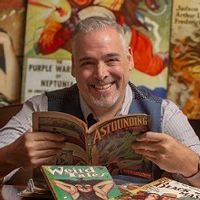
Jason W. Ellis is an Assistant Professor of English at the New York City College of Technology, CUNY where he is also a Co-Director of OpenLab (openlab.citytech.cuny.edu), an open source, online platform for learning, working, and sharing. He holds a Ph.D. in English from Kent State University, M.A. in Science Fiction Studies from the University of Liverpool, and B.S. in Science, Technology, and Culture from Georgia Tech. He blogs about his research and teaching at dynamicsubspace.net. Recently, he talked about the relationship between Science Fiction and society with Dr. Neil deGrasse Tyson on StarTalk Radio (30 May 2019).
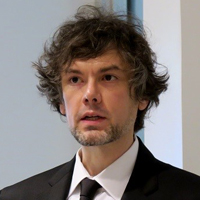
Brooks Hefner, Associate Professor of English at James Madison University, is the author of The Word on the Streets: The American Language of Vernacular Modernism (2017) as well as a number of articles and book chapters on genre, race, and popular media. He also serves as co-director of Circulating American Magazines, a digital resource for U.S. periodical studies, and he is currently working on a book on the history of black genre fiction, tentatively titled Black Pulp: Race and Genre in Twentieth Century African American Newspapers.
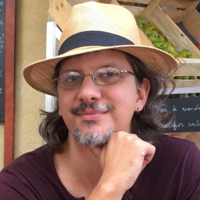
Catherine Keyser is Associate Professor of English at the University of South Carolina. She is the author of Playing Smart: New York Women Writers and Modern Magazine Culture (Rutgers UP 2010) and Artificial Color: Modern Food and Racial Fictions (Oxford UP 2019). She has published essays on U.S. periodical culture in Modernist Cultures, American Periodicals, and The Journal of Modern Periodical Studies and currently serves as the book review editor for the Journal of Modern Periodical Studies.
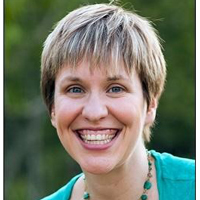
Christopher La Casse is an Assistant Professor and Director of the Hewitt Writing and Reading Center at the US Coast Guard Academy. His primary research interest focuses on how the economic, political, and cultural pressures of the First World War shaped the development and dissemination of modernism(s) in literary magazines and modern periodicals. His publications have appeared in Criticism (2016), American Periodicals (2016), The Edinburgh Companion to the First World War and the Arts (2017), Women’s Space: Essays on Female Characters in the Twenty-First Century Science Fiction Western (2019), Recovering and Transforming the Pedagogy of Robert Scholes (2019), and The Routledge Companion to the Literary Magazine (forthcoming). He serves as Secretary of the Research Society for American Periodicals and is Project Coordinator of the NEH Summer Institute, City of Print: New York and the Periodical Press (2015 and 2020).
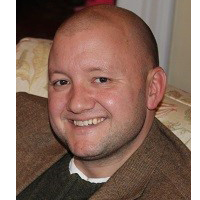
Lavelle Porter is a native of Meridian, Mississippi, and is currently an Assistant Professor of English at New York City College of Technology, CUNY. He holds a BA in history from Morehouse College and a PhD in English from The Graduate Center, CUNY. He is the author of The Blackademic Life: Academic Fiction, Higher Education, and the Black Intellectual (Northwestern University Press, 2019). His writing has appeared in various publications, including The New Inquiry, Poetry Foundation, and JSTOR Daily, and he is a blogger for Black Perspectives, the blog of the African American Intellectual History Society (AAIHS). He serves on the Board of Directors of the CLAGS Center for LGBTQ Studies at The Graduate Center, CUNY. He is also a licensed New York City walking tour guide and teaches courses on New York City literature and history at City Tech.
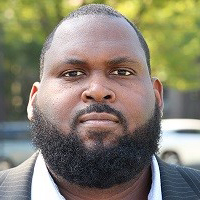
Karen Roggenkamp is Professor of English at Texas A&M University-Commerce, where she teaches classes in American literature and the history of children’s and adolescent literature. Dr. Roggenkamp's research focuses on nineteenth-century American periodical culture, and she is the author of Sympathy, Madness, and Crime: How Four Nineteenth-Century Journalists Made the Newspaper Women's Work (Kent State University Press, 2016), Narrating the News: New Journalism and Literary Genre in Late Nineteenth-Century American Newspapers and Fiction (Kent State UP, 2005), as well as several articles about the intersections between the newspaper and literary marketplaces. She was also co-editor of American Periodicals, the journal of the Research Society for American Periodicals, from 2010-2015.
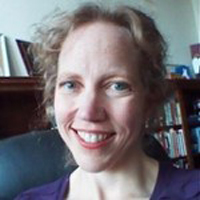
Graham Thompson is Professor of American Literature at the University of Nottingham. His most recent book is Herman Melville: Among the Magazines (2018) and he is also the author of Male Sexuality under Surveillance: The Office in American Literature (University of Iowa Press, 2003), The Business of America: The Literary and Critical Production of a Post-War Nation (Pluto Press, 2004), and American Culture in the 1980s (Columbia University Press & Edinburgh University Press, 2007). He has published essays in American Literature, Modern Fiction Studies, the Journal of American Studies, American Periodicals, Leviathan, American Literary Realism, and Arizona Quarterly. He is currently working on a new book project titled Making American Literature, which will be the first media history of nineteenth-century literature.
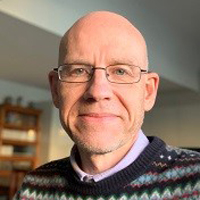
Ed Timke is an instructor of advertising, media, and intercultural communication courses at Duke University for the Department of Cultural Anthropology and the Innovation & Entrepreneurship Initiative. He is also Associate Editor of Advertising & Society Quarterly and a contributor to ADTextOnline.org. Timke's specialties include media and advertising history, international media and advertising, and media theory and research methods. His work focuses on the role of media and advertising in shaping how different cultures understand and imagine each other. With Brooks Hefner, Timke is a 2017 recipient of a Digital Humanities Advancement Grant from the National Endowment for the Humanities. He has also received numerous awards and nominations recognizing his excellence in teaching and mentoring of student research.
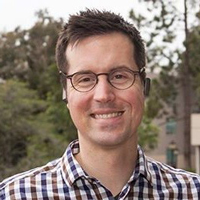
Daniel Worden is Associate Professor in the School of Individualized Study and Department of English at the Rochester Institute of Technology. He is the author of Neoliberal Nonfictions: The Documentary Aesthetic from Joan Didion to Jay-Z and Masculine Style: The American West and Literary Modernism, the editor of The Comics of Joe Sacco: Journalism in a Visual World, and the co-editor of Oil Culture and Postmodern/Postwar & After: Rethinking American Literature.
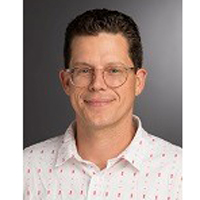
The taxable NEH stipend for a two-week Summer Institute is $2,100, intended to help defray costs of travel, lodging, meals, and books in connection with the Institute. For our project, we have pre-arranged lodging for 14 nights at the St. George Clark. The facility located at 55 Clark Street (between Henry and Hicks Streets), provides student housing for all travelers to New York City. Scholars will be assigned a single living space furnished (does not include linens) with a bed, chests of drawers, desk, desk chair and closet. A private bathroom, refrigerator, microwave, Wi-Fi Internet access and cable television are also provided within the room. The building offers 24-hour security, key-card entrance to residence and rooms, gym facilities, vending machines, laundry facilities and communal kitchens. These accommodations are not recommended if you are traveling with a partner/spouse or family. The rate for NEH Summer Scholars is $675/per week plus $25 membership fee. A linens package is available for $75 and includes pillow, sheets, blanket, bath rug and towels. There is no tax on these fees.
If you require short, or long-term parking arrangements, there are two parking garages near the St. George Clark: Central Parking and Icon Parking Systems.
Evening reception with all participants, followed by opening lecture.
Location: Brooklyn Historical Society
Keynote Speaker: Mark Noonan, Past President, Research Society of American Periodicals
Topic: “At John Holt’s Tomb: Patriot Printers in the City of Print”
This talk, commemorating the approach of the 250th anniversary of the American Revolution, will complement a public exhibit on the Sons of Liberty and related Revolutionary era prints at Fraunces Tavern and Museum.
Morning
Location: New York City College of Technology
Topic: Institute Program Overview; Digital Tools Demonstration
Seminar leaders: Adam McKible, Mark Noonan, and Kelley Kreitz
Topic: “Digitalizing the Social Networks of the Early Black Republic of Letters”
Seminar Scholar: Jim Casey, Princeton Center for Digital Humanities
Afternoon
Location: New York City College of Technology
Topic: Paper Gotham: New York City as Pulp Mecca
Seminar scholar: David M. Earle, Professor of Transatlantic Modernism and Print Culture at the University of West Florida
Morning
Location: New-York Historical Society (170 Central Park West at 77th Street)
Topic: Performing Periodical Archival Research
Seminar scholar: Collections curator, Mariam Touba
Afternoon
Location: John Jay College of Criminal Justice (CUNY)
Topic: Mapping the Print Communities of Latina/o New York
Seminar scholar: Kelley Kreitz, Pace University
Conference sessions with institute faculty about project
Morning
Location: Pulp Fiction Collections Room, New City College of Technology
Topic: “Digital Methods Workshop”
Seminar scholar: Jason Ellis, New York City College of Technology and Edward Timke, Duke University
Afternoon
Topic: Independent Work or Opportunity to Consult on Digital Project ideas with Professors Ellis, Timke and Kreitz
Conference sessions with institute faculty about project
Morning
Location: New York City College of Technology
Topic: “Herman Melville: Among the Magazines”
Seminar scholar: Graham Thompson
Afternoon
Activity: Site visit of New York’s Seaport District to explore locations central to Colonial era printers and, in the 19th century, Herman Melville
Morning
Location: Pace University
Topic: The Evolution of Nineteenth-Century New York Newspapers
Seminar Leader: Karen Roggenkamp, Texas A&M University
Afternoon
Activity: Site visit of Printing House Square
Morning
Location: New York City College of Technology
Topic: New York Modernism in the Magazines
Seminar scholar: Adam McKible, John Jay College, and Suzanne Churchill, Davidson College
Conference sessions with institute faculty about project
Afternoon
Activity: Site visit of Gramercy Park, Union Square, and Madison Square Park
Morning
Site Visit: Literary Harlem
Tour Leader: Lavelle Porter, New York City College of Technology
Afternoon
Location: The Schomburg Center for Research in Black Culture
Topic: “Signifying Genre: George S. Schuyler and the Vagaries of Black Pulp”
Seminar scholar: Brooks Hefner, James Madison University
Conference sessions with institute faculty about project
Morning
Topic: Independent Work
Afternoon
Luncheon: The Algonquin Hotel (59 West 44th St)
Topic: New York Women Writers and Modern Magazine Culture
Seminar scholar: Catherine Keyser, University of South Carolina
Morning
Activity: Site Visit of the Tenement House Museum and the Lower East Side
Afternoon
Location: Fales Library and Special Collections, New York University
Topic: Cool Realism: The New Journalism and New York Literary Culture
Seminar scholar: Daniel Worden, Rochester Institute of Technology
Conference sessions with institute faculty about project
Morning
Location: New York City College of Technology
Topic: Teaching Periodicals in the Digital Age
Seminar scholar: Christopher La Casse, U.S. Coast Guard Academy
Afternoon
Location: New York City College of Technology
Topic: Review of Institute and Participant Presentations
Thomas Bender, New York Intellect: A History of Intellectual Life in New York City, from 1750 to the Beginnings of Our Own Time (Johns Hopkins UP, 1987).
David M. Earle, All Man! Hemingway, 1950s Men’s Magazines, and the Masculine Persona (Kent State UP, 2009)
Catherine Keyser, Playing Smart: New York Women Writers and Modern Magazine Culture (Rutgers UP, 2010)
Brooks Hefner, The Word on the Streets: The American Language of Vernacular Modernism (Univ. of Virginia Press, 2017)
Tim Lanzendörfer, “The Metaphors We Use,” Special Forum, American Periodicals (Spring 2020)
Karen Roggenkamp, Narrating the News: New Journalism and Literary Genre in Late Nineteenth-Century American Newspapers and Fiction (Kent State UP, 2005)
Graham Thompson, Herman Melville: Among the Magazines (Univ. of Massachusetts Press, 2018)
Morning Session
Topic: Institute Overview
Readings: Sean Latham and Robert Scholes, “The Rise of Periodical Studies” PMLA 121:1 (2006); Matt Gold, Debates in the Digital Humanities (Minneapolis, Univ. of Minnesota Press, 2012). Kelley Kreitz, “Towards a Latinx Digital Humanities Pedagogy: Remixing, Reassembling, and Reimagining the Archive.” Educational Media International. 54.4 (2017): 304-316.
Suggested Additional Reading: Benjamin Fagan, The Black Newspaper and the Chosen Nation (Athens: University of Georgia Press, 2016).
Afternoon Session
Topic: Paper Gotham: New York City as Pulp Mecca
Readings: David M. Earle. “Pulp Magazines and the Popular Press An American Art” in The Oxford Critical and Cultural History of Modernist Magazines Volume II: North America 1894-1960, eds. Peter Brooker and Andrew Thacker (Oxford: Oxford University Press, 2012); “Monster on Stage 4” Amazing Stories (August 1957).
Morning Session
Topic: Performing Periodical Archival Research
Reading: David M. Henkin, City Reading: Written Words and Public Spaces in Antebellum New York (New York: Columbia UP, 1998)
Suggested Additional Readings: Jared Gardner, The Rise and Fall of Early American Magazine Culture (Illinois UP, 2012); Edward L. Widmer. Young America: The Flowering of Democracy in New York City (New York, Oxford UP, 1999)
Afternoon Session
Topic: Mapping the Print Communities of Latina/o New York
Reading: Kelley Kreitz, “American Alternatives: Participatory Futures of Print from New York City’s Nineteenth-Century Spanish-Language Press.” American Literary History (30:4 November 2018).
Suggested Additional Readings: Susan L. Mizruchi, Multicultural America: Economy and Print Culture, 1865-1915; Aurora Wallace, Media Capital: Architecture and Communications in New York City (Urbana: Univ. Illinois Press, 2012)
Morning Session
Topic: Digital Methods Workshop
Reading: Ed Timke, “Digitally Compressing the Magazine Archive: What Might Be Won and Lost When Forgoing a Visit to the Stacks.” Media Fields Journal (August 2013); Denbo, Seth. “Data Storytelling and Historical Knowledge.” Perspectives on History (April 2015). Heuser, Ryan, and Long Le-Khac. “Learning to Read Data: Bringing Out the Humanistic in the Digital Humanities.” Victorian Studies 54, no. 1 (2011).
Suggested Additional Reading:
Jason W. Ellis, “Engineering a Cosmopolitan Future: Race, Nation, and World of Warcraft” in The Postnational Fantasy: Essays on Postcolonialism, Cosmopolitics and Science Fiction (London: McFarland, 2011).
Morning Session
Topic: Herman Melville: Among the Magazines
Reading: Graham Thompson, Herman Melville: Among the Magazines (Amherst: Univ. of Mass. Press, 2018)
Suggested Additional Readings: Hans Bergman, God in the Street: New York Writing from the Penny Press to Melville (Temple: Temple UP, 1995); Thomas Augst “Melville, at Sea in the City” in The Cambridge Companion to New York Literature (NY: Oxford, 2010); Herman Melville’s “Bartleby, the Scrivener” (Putnam’s Monthly, Nov. and Dec. 1853) and “The Paradise of Bachelors and the Tarturus of Maids” (Harper’s New Monthly Magazine, April 1855)
Afternoon Session
Activity: Site visit of New York Seaport
Reading: Steven Carl Smith, An Empire of Print: The New York Publishing Trade in the Early American Republic (Penn State UP, 2017).
Suggested Additional Readings: Ezra Greenspan,George Palmer Putnam: Representative American Publisher (University Park: Penn State UP, 2000); Graham Thompson, “The "Plain Facts" of Fine Paper in "The Paradise of Bachelors and the Tartarus of Maids” American Literature (84:3 2012).
Morning Session
Topic: The Evolution of Nineteenth-Century New York Newspapers
Reading: Karen Roggenkamp, Sympathy, Madness, and Crime How Four Nineteenth-Century Journalists Made the Newspaper Women’s Business (Kent State: Kent State UP, 2016); Elizabeth Jordan, “Ruth Herrick’s Assignment,” Cosmopolitan August 1894.
Suggested Additional Reading: Bonnie M. Miller “The Spectacle of Disaster: The Explosion of the USS Maine” from From Liberation to Conquest: The Visual and Popular Cultures of the Spanish-American War of 1898 (Amherst: UMass Press, 2011).
Afternoon Session
Activity: Site Visit of Park Row and Printer’s Square
Readings: David S. Reynolds, “Walt Whitman’s Journalism: The Foreground of Leaves of Grass,” (in Literature and Journalism: Inspiration, Intersections, and Inventions from Ben Franklin to Stephen Colbert, ed. Mark Canada. London: Palgrave, 2013, 47-67); Justin Martin, Rebel Souls: Walt Whitman and America’s First Bohemians (NY: De Capo Press, 2015); Stephen Crane, “Experiment in Misery” New York Press, April 22, 1894; Theodore Dreiser, "A Touch of Human Brotherhood," Success Magazine (March 1902); Walt Whitman, “Crossing Brooklyn Ferry”; Willa Cather, “Behind the Woolworth Building” Collier’s (May 1912).
Morning Session
Topic: New York Modernism in the Magazines
Readings: Suzanne W. Churchill and Adam McKible, Little Magazines and Modernism: New Approaches and “Modernism in the Magazines” in The Oxford Critical and Cultural History of Modernist Magazines.
Van Vechten, Carl, The Blind Bow-Boy (1923), edited by Kirsten MacLeod (2018).
Suggested Additional Readings: Mark S. Morrision, The Public Face of Modernism: Little Magazines, Audiences, and Reception, 1905-1920 (Madison: University of Wisconsin UP, 2001); Robert Scholes and Clifford Wulfman, Modernism in the Magazines: An Introduction (New Haven: Yale UP, 2010)
Afternoon Session
Activity: Site visit of Gramercy Park and Union Square
Readings: Carole Klein, Gramercy Park: An American Bloomsbury (Athens: Ohio State UP, 1987)
Suggested Additional Readings: Christine Stansell, American Moderns: Bohemian New York and the Creation of a New Century (NY: Henry Holt, 2000); Linda Leavell, “Sojourn in the Whale” from Marianne Moore and the Visual Arts (Baton Rouge: Louisiana State UP, 1995), pp. 10-56.
Morning Session
Activity: Site Tour of Literary Harlem
Reading: “Harlem Renaissance Studies Now,” Modernism/modernity (Spring 2014), edited by Adam McKible and Suzanne Churchill.
Afternoon Session
Topic: “Signifying Genre: George S. Schuyler and the Vagaries of Black Pulp”
Seminar Scholar: Brooks Hefner
Reading: Gertrude Schalk, “The Yellow Parrot”; George S. Schuyler, “Summer-School Idyll.”
Suggested Additional Readings: Fire!!! Devoted to Younger Negro Artists (Reprint of Vol. 1:1 1926); Carla Kaplan “A New Literary Journal Announces Its Mission: ‘Burning Wooden Opposition’” in A New Literary History of America, eds. Greil Marcus and Werner Sollors (Cambridge: Harvard UP, 2009) 593-598.
Lunch Session
Topic: New York Women Writers and Modern Magazine Culture
Reading: Playing Smart: New York Women Writers and Modern Magazine Culture (New Brunswick: Rutgers UP, 2010); Dorothy Parker, “The Garter” (August 31, 1928, New Yorker, 17-18).
Suggested Additional Readings: Ben Yagoda, About Town: The New Yorker and the World It Made (London: Duckworth, 2000)
Afternoon Session
Activity: Site tour of the Condé Nast Building and Exploration of its Archives (Freedom Tower)
Reading: Christoph Lindner, “Skylines” from Imagining New York City: Literature, Urbanism, and the Visual Arts, 1890-1940 (NY: Oxford, 2015).
Suggested Additional Reading: Michael Lesy “Life Begins” in A New Literary History of America, eds. Greil Marcus and Werner Sollors (Cambridge: Harvard UP, 2009) 714-719.
Morning Session
Activity: Site Visit of the Lower East Side
Readings: Isaac Metzker, ed., A Bintel Brief: Sixty Years of Letters from the Lower East Side to the Jewish Daily Forward (Schocken 1990); Daniel Kane, “The Aesthetics of the Little” from The Lower East Side Poetry Scene in the 1960s (Berkeley: Univ. Berkeley Press, 2003); Selections from The Village Voice Reader, ed. Daniel Wolf (Grove Press, 1963). Frank O’Hara “In Memory of My Feelings” Evergreen Review (Vol. 2: no. 6, 1958).
Audio Podcast: “Passing Stranger” (http://eastvillagepoetrywalk.org/about.html)
Afternoon Session
Topic: Cool Realism: The New Journalism and New York Literary Culture
Readings: Excerpt from Daniel Worden, Neoliberal Nonfictions: The Documentary Aesthetic from Joan Didion to Jay-Z; Norman Mailer, “Superman Comes to the Supermarket,” Esquire (November 1960); Joan Didion, “Insider Baseball,” New York Review of Books (27 October 1988).
Suggested Additional Reading: Louis Menand, “It Took a Village: How The Voice Changed Journalism” New Yorker (Jan. 5, 2009).
Morning Session
Topic: Teaching Periodicals in the Digital Age
Readings: Suzanne W. Churchill, Linda A. Kinnahan, and Susan Rosenbaum, “Mina Loy Baedeker: Scholarly Handbook for Digital Travelers” at (mina-loy.com/chapters/); Christopher J. La Casse and Mariette C. Ogg, “’Read All About It’”: Textuality in First Year Writing” in Recovering and Transforming the Pedagogy of Robert Scholes (forthcoming).
Marriott at the Brooklyn Bridge Hotel
350 Jay St, Brooklyn, New York, NY 11201
City Parking
85 Flatbush Ave Ext, Brooklyn, New York, NY 11201
Enterprise Parking Systems
306 Gold St, Brooklyn, New York, NY 11201
One Metro Tech Center Garage
351 Jay St, Brooklyn, New York, NY 11201
215 Jay St. Garage
120 Concord St, Brooklyn,New York, NY 11201